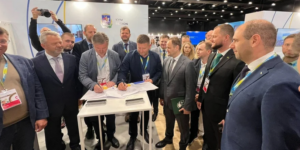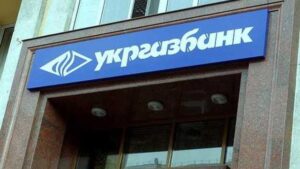
Bosnian investment group ASA Group has announced the completion of its acquisition of the Zito Backa flour mill in Kula, Serbia. This was stated in the company’s official press release published on Friday.
According to ASA Group, the deal makes its subsidiary ASA Trading a leader in Serbia’s grain sector in terms of grain trading volume, storage capacity, and processing capacity.
“This is a logical continuation of our expansion strategy in key sectors of the region. Zito Backa has more than a century of tradition, reliable quality, and infrastructure that matches our international ambitions,” said ASA Group CEO Eldin Hadzislimovic.
The company emphasized that it is building on its previous experience in asset integration, including the purchase of the Zitoprodukt mill in Bačka Palanka in 2018. According to ASA Group representatives, the new acquisition will complement the ecosystem in the consumer goods segment and strengthen the group’s export potential in Southeast Europe.
In addition to the grain sector, the holding company is actively developing projects in other industries, including date and vegetable oil production in Morocco and Turkey, as well as renewable energy in Bosnia and Herzegovina (solar power plants in Bosanski Petrovac).
Zito Backa is one of Serbia’s oldest flour milling companies. It was founded over 100 years ago. In 2013, the plant in Kula was modernized: capacity was increased to 220 tons of flour per day (in wheat equivalent) and a 50,000-ton grain storage facility was built. The company is known for its high-quality flour and stable supplies to domestic and export markets.
https://t.me/relocationrs/1170

Italian food packaging manufacturer GUALA PACK S.P.A is investing EUR12 million in the construction of a complex of industrial buildings with a total area of approximately 10,000 square meters in the Belaya Tserkov industrial park, according to Dmitry Kiselevsky, deputy chairman of the Verkhovna Rada Committee on Economic Development.
“The Bila Tserkva industrial park has just signed an agreement in Rome with Gualapack Ukraine, a subsidiary of the Italian company GUALA PACK S.P.A., for the construction of a complex of industrial buildings with a total area of about 10,000 square meters. The factory, which until recently operated in Sumy and was partially restarted on leased premises in the Ternopil region, will be relocated to the new premises,” he wrote on his Facebook page on Friday.
The plant manufactures packaging for the food industry. The company employs about 300 people with an average salary of 30,000 hryvnia.
According to Kysilevsky, the construction and connection of utilities will take about 12 months. All buildings will be built from scratch, taking into account the company’s infrastructure needs.
According to him, IP “Bila Tserkva” currently has 19 residents.
As reported, in April 2025, the Finnish company Peikko Group Corporation announced the commissioning of a plant for the production of concrete connections and composite structures at IP “Bila Tserkva.”
Other residents include Unilever, InTiCa Systems, Peikko, and Pripravka, which relocated from Kharkiv, as well as the Nova Poshta logistics depot, the Volytsia-Agro grain storage complex, the Plank Electrotechnic electrical fittings factory, and Virastar, a manufacturer of high-altitude equipment for construction work.
Belaya Tserkov and Belaya Tserkov 2 were included in the Register of Industrial Parks in 2018.
Gualapack Ukraine LLC has been operating in Ukraine since 2013 and is a leading manufacturer of flexible packaging for various types of production.
According to the company’s financial report on its website, in 2024, consolidated net profit decreased more than 10 times compared to the previous year, to UAH 13.05 million, with revenue growing by 3.6% to UAH 1 billion 145 million.
In May 2023, the company acquired 100% of Gualapack Poland (Poland) (until October 2023 – ALIKO-TRADING ЅроІка z ograniczoną odpowiedzialnością) with the aim of further expanding its trading activities in the Polish market.

Development company White Star Real Estate is investing EUR 200 million in the creation of the Bucha Techno Garden industrial and logistics hub, according to Bucha Mayor Anatoliy Fedoruk.
“The first results from Rome. The American company White Star Real Estate has announced the launch of a large-scale investment project in the Bucha community. The total cost of the project, which will be implemented within the Bucha Techno Garden industrial park, is EUR200 million,” Fedoruk said on Telegram.
The corresponding memorandum was signed on July 10 in Rome between White Star Real Estate, the government agency UkraineInvest, and the Bucha City Council. The document confirms the parties’ intentions to implement an industrial and logistics hub in the Bucha community. The company plans to build it on its own 41-hectare plot of land. According to the mayor, this project opens up new opportunities for economic growth in the Bucha community: the creation of hundreds of jobs, the attraction of high-tech businesses, the development of infrastructure, and increased confidence from international investors.
White Star Real Estate is an international real estate company whose main activities are real estate acquisition and development, as well as asset and property management services. The company has been present in Central and Eastern Europe since 1997, completing more than 2.5 million square meters in over 50 development projects and currently managing more than 1.8 million square meters of commercial real estate. White Star Real Estate is currently active in the Czech Republic, Hungary, Poland, Romania, and Slovakia. White Star Real Estate (Ukraine) LLC was established in September 2023 with a registered capital of UAH 3.5 million and Brian Dale Patterson (USA) as its ultimate beneficiary.

The European Investment Bank (EIB) will provide two loans of EUR 50 million and EUR 70 million to state-owned Ukrgasbank (Kyiv) to finance energy independence projects for municipalities and support green growth of small and medium-sized businesses, as well as a new EU portfolio guarantee.
“Within the framework of the Ukraine Recovery Conference (URC) in Rome, UGB (Ukrgasbank) and the European Investment Bank (EIB) announced the signing of a multi-component financial package,” the bank said on Thursday.
It is noted that this will allow attracting additional financing for small and medium-sized businesses worth tens of millions of euros and has become one of the first significant results of the Ukraine Recovery Conference 2025 in Rome.
As part of the package, Ukrgasbank will allocate EUR 50 million to strengthen the energy independence of Ukrainian municipalities. The funds will be used to modernize the district heating infrastructure, develop decentralized heat generation, integrate renewable energy sources and improve energy efficiency of public buildings. The EU grant component will make this funding available to frontline communities.
Another EUR 70 million will be allocated to support the sustainability and green growth of small and medium-sized businesses. These funds will help businesses maintain operations, modernize and implement environmental solutions.
“This financing is further strengthened by a portfolio guarantee from the EU provided by the EIB, which will significantly increase Ukrgasbank’s ability to lend and raise critical capital for the private sector in the amount of more than EUR 31.25 million, even in wartime,” the bank added.
According to the National Bank of Ukraine, in April 2025, Ukrgasbank ranked fifth in terms of total assets (UAH 220.0 billion or 5.9%) among 60 banks operating in the country.
As reported, the European Investment Bank Group and the European Commission announced a new EU financing package of EUR 600 million at the Ukraine Recovery Conference.

A branded store of premium household appliances Dyson will open in Ocean Mall, the company’s representative office said.
“Dyson stands for innovation, style and impeccable quality in every detail. The hair dryers, stylers, vacuum cleaners and air purifiers that have conquered the world can now be tested and purchased at the new official Dyson store,” the representative office said.
The branded store will also offer the purchase of Dyson devices in installments or on credit.
Dyson is a British company that manufactures premium appliances. Dyson has opened up new approaches to traditional products, including cordless vacuum cleaners with low energy consumption, fans without blades, air purifiers, heaters, high-efficiency hair dryers, stylers and straighteners. Dyson products are currently sold in more than 70 countries.
Ocean Mall is a retail resort shopping center. The total area is 300 thousand square meters, with a parking lot for 4 thousand cars. The mall will combine 800 shops and 50 restaurants. Among the largest tenants are Silpo grocery supermarket, flagship stores of the world’s largest retailers in the segments of fashion, sports, and home furnishings. More than 30 thousand square meters in Ocean Mall are devoted to entertainment, including Galaxy amusement park for the whole family and a 7-hall multiplex cinema.
Source: https://interfax.com.ua/news/general/1086872.html